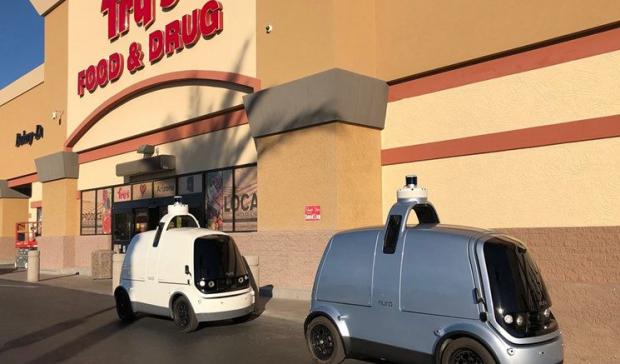
Breaking News
 EXCLUSIVE: "The HUGE Elephant In The Room Is Actually What Jeffrey Epstein Was Best At..."
EXCLUSIVE: "The HUGE Elephant In The Room Is Actually What Jeffrey Epstein Was Best At..."
 EXCLUSIVE INTERVIEW: Republican Candidate For Texas Governor "Doc" Pete Chambers Joins...
EXCLUSIVE INTERVIEW: Republican Candidate For Texas Governor "Doc" Pete Chambers Joins...
 Epstein Files Trigger Political Fallout Across Europe
Epstein Files Trigger Political Fallout Across Europe
 Conjoined twin 'influencers' who have gained more than 280,000 followers with their intimate
Conjoined twin 'influencers' who have gained more than 280,000 followers with their intimate
Top Tech News
 How underwater 3D printing could soon transform maritime construction
How underwater 3D printing could soon transform maritime construction
 Smart soldering iron packs a camera to show you what you're doing
Smart soldering iron packs a camera to show you what you're doing
 Look, no hands: Flying umbrella follows user through the rain
Look, no hands: Flying umbrella follows user through the rain
 Critical Linux Warning: 800,000 Devices Are EXPOSED
Critical Linux Warning: 800,000 Devices Are EXPOSED
 'Brave New World': IVF Company's Eugenics Tool Lets Couples Pick 'Best' Baby, Di
'Brave New World': IVF Company's Eugenics Tool Lets Couples Pick 'Best' Baby, Di
 The smartphone just fired a warning shot at the camera industry.
The smartphone just fired a warning shot at the camera industry.
 A revolutionary breakthrough in dental science is changing how we fight tooth decay
A revolutionary breakthrough in dental science is changing how we fight tooth decay
 Docan Energy "Panda": 32kWh for $2,530!
Docan Energy "Panda": 32kWh for $2,530!
 Rugged phone with multi-day battery life doubles as a 1080p projector
Rugged phone with multi-day battery life doubles as a 1080p projector
 4 Sisters Invent Electric Tractor with Mom and Dad and it's Selling in 5 Countries
4 Sisters Invent Electric Tractor with Mom and Dad and it's Selling in 5 Countries
Got Milk? Driverless Cars Will Deliver Your Grocies

Deliveries from an Arizona grocery store will soon be arriving with no one behind the wheel.
A fully autonomous vehicle is about to pilot public roads Tuesday with no back up driver, though it will be monitored by humans in another automobile.
After almost a thousand test runs with humans aboard modified Prius vehicles, deliveries will be made Tuesday in Scottsdale, Arizona, using the R1, an automobile with no steering wheel and no seats for humans.
The R1, when summoned, will travel within a one-mile radius of the Fry's Food grocery store just east of the Phoenix Zoo.
It will travel up to 25 miles per hour on residential roads, but stay clear of main roads or highways, according to Pam Giannonatti at Kroger Co., which owns Fry's.
Kroger has partnered with the tech company Nuro on the project.
"Through this exciting and innovative partnership, we are delivering a great customer experience and advancing Kroger's commitment to redefine the grocery experience by creating an ecosystem that offers our customers anything, anytime, and anywhere," said Yael Cosset, Kroger's chief digital officer.
Attempts to deploy fully autonomous vehicles on public streets have been limited by technological hurdles, as well as human apprehension.
Uber pulled its self-driving cars out of Arizona this year following the death in March of woman who was run over by one of the ride-hailing service's robotic vehicles while she crossed a darkened street in a Phoenix suburb. It was the first death involving a fully autonomous vehicle.



